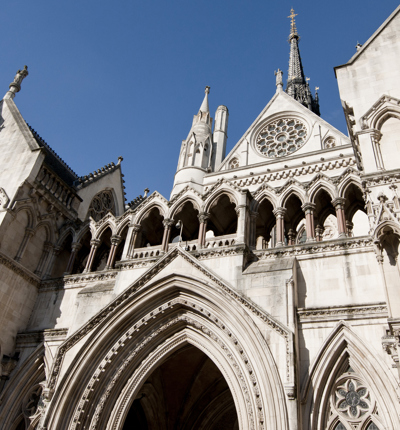
Campaign group to appeal after High Court NHS legal challenge rejected
A campaign group has said it will appeal after it lost a High Court ruling over the Government's plan to restructure the payment mechanisms for providers of health services.
Posted on 15 May 2018
Campaign group 999 Call for the NHS, represented by law firm Leigh Day, had plans by NHS England to introduce Accountable Care Organisations (ACOs) at a judicial review hearing, heard at the High Court in Leeds.
In today’s ruling the judge, The Hon Mr Justice Kerr, ruled that the plan by the Government to introduce the ACOs, a block contracting arrangement which will see providers paid a fixed payment without reference to the quality of service they provide as measured by results, was not unlawful.
The ACO provides for a payment mechanism called the ‘Whole Population Annual Payment’ (WPAP), which is linked to the number of people living in the area in which the ACO operates.
999 Call for the NHS argue that the introduction of the new finance structures could lead to patients’ care being compromised by financial considerations.
However in today’s judgment, Mr Justice Kerr ruled:
“…the claimant [999 Call for the NHS] complains that the WPAP imposes budgetary control at the expense of not being “demand led”: the ACO does not know how many hip replacements it will have to fund from its fixed budget. This, the claimant argued, encourages the very price competition which the 2012 Act was supposed to banish and which, politicians have said publicly, does not work.
“That is a political objection and is not a matter for the court. There are no doubt advantages and disadvantages to every payment system. The WPAP can be judged in the political arena but this court does not find anything unlawful in its use as the law stands.”
The introduction of ACOs was announced in August 2017 and will see local hospital trusts and clinical commissioning groups, which currently oversee local GP services, no longer receiving an annual budget of their own but will instead become part of a wider ACO.
Each ACO will then receive an annual budget to provide all publicly funded healthcare across a geographic area.
Campaigners are concerned the proposed changes will mean medical professionals will be forced to make decisions around the care a patient receives on the basis of the cost of a treatment rather than medical need.
999 Call for the NHS argued that the new contracts for ACOs are unlawful under the Health and Social Care Act 2012 and could threaten patient safety by forcing care providers to potentially restrict patients’ access to treatment.
In a broader sense the campaign group also believe the core principle of the NHS of providing comprehensive care to all is being threatened by the introduction of ACOs.
Solicitor Rowan Smith, from Leigh Day, who is representing 999 Call for the NHS, said:
“This is not the last word on such an important issue for the NHS. The High Court may have found that NHS England does have the legal power to introduce fixed budgets, but we believe the grounds of appeal are clear.
“We believe the judgment includes a conflation of the statutory roles of NHSE England (the Defendant) and Monitor (the Interested Party), as well as a misunderstanding of NHSE England’s duty to pay for the delivery of each individual health care service. This payment by results system was negotiated in Parliament as a crucial safeguard against a price war within the NHS.
“Our clients believe that ACOs are an attempt to circumvent this essential system outside of the existing statutory framework, and they quite rightly wish this to be further scrutinised by the courts."
Steven Carne from the 999 Call for the NHS Judicial Review team said,
“We are not satisfied with the judge’s ruling, which we think is seriously flawed. We now have 21 days to prepare an appeal and will be working with our legal team to investigate this option.”

